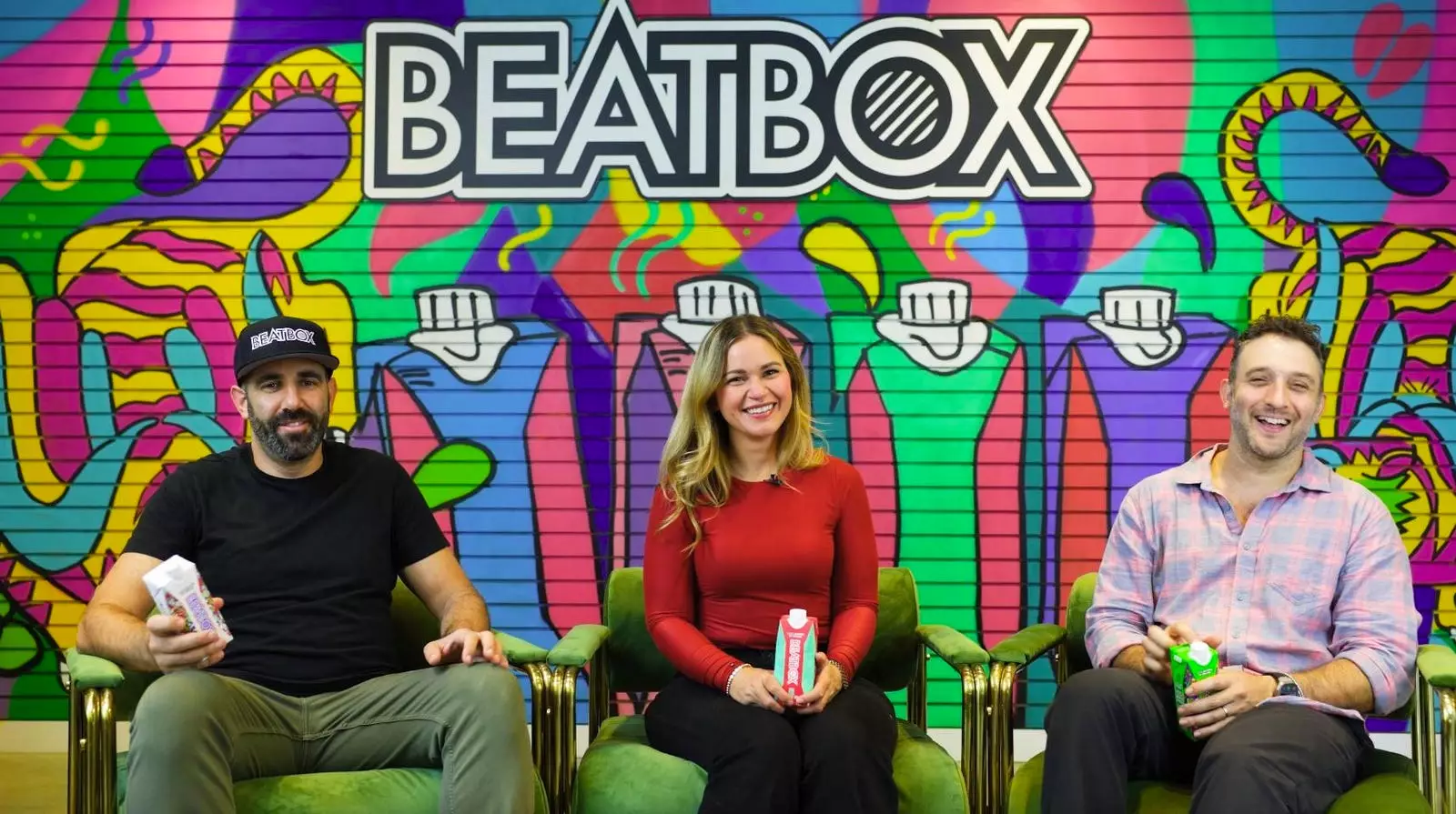In 2014, three ambitious entrepreneurs, Justin Fenchel, Aimy Steadman, and Brad Schultz, transformed a simple desire into a multimillion-dollar beverage enterprise. Highlighting their frustrations with the limited alcoholic choices available at college parties, these MBA students from the University of Texas at Austin conceived a product that would not only cater to party enthusiasts but also bring a sense of vibrancy tied to their love for music. Their invention, BeatBox Beverages, which debuted on ABC’s Shark Tank, presented a colorful bag-in-a-box cocktail that was uniquely designed for social settings and music lovers. With an impressive alcohol by volume (ABV) of 11%, their offerings included enticing flavors such as blueberry ‘razz’ lemonade and cranberry limeade, aimed directly at younger consumers looking for something beyond traditional alcoholic beverages.
One of the fundamental shifts in the alcohol market has been the rise of ready-to-drink (RTD) cocktails as consumers increasingly seek convenience and novelty. BeatBox thrived in this burgeoning market, presenting a product that was not only refreshing but also visually appealing. The concept of a party-friendly beverage packaged conveniently in a five-liter box made it more practical for gatherings, providing 34 servings at an accessible price point of $25.
The journey to success was not without its challenges. Initially operating from a modest 800-square-foot facility in Austin, BeatBox had to reevaluate its distribution and pricing strategies to position itself effectively in a competitive industry dominated by more established brands. Recognizing that their initial retail pricing was a barrier, the company shifted to a single-serve format in 2017, an innovative move that allowed them to engage a broader audience. This transformation not only made the product more accessible but also propelled BeatBox into the forefront of the RTD market, enabling it to capture the attention of consumers who preferred smaller portions without sacrificing the exhilarating experience of a party beverage.
Another significant transition occurred in their distribution strategy; by aligning with beer distributors instead of traditional wine and liquor channels, BeatBox could reach a more extensive network of retail stores, including convenience outlets like 7-Eleven. The results were telling: in early 2018, sales surged, reflecting BeatBox’s effective navigation of the competitive landscape. Their dual-pronged strategy of adaptable packaging and enhanced distribution channels showcased remarkable foresight that contributed to the company doubling its profits from $2 million to $4 million in just one year.
As the company’s reputation grew, so did its ambition. With the backing of notable investors, including Mark Cuban, who recognized the potential for exponential growth, BeatBox Beverages began its ascent toward a remarkable valuation of $200 million. Under the guidance of beverage industry veterans, the company focused on scaling its operations, improving marketing strategies, and diversifying its product lineup to attract a wider audience. The introduction of new flavors like Orange Blast and the slated launch of a Cherry Limeade single-serve option demonstrated a commitment to evolving with consumer preferences.
Furthermore, integrating celebrity endorsements into their marketing efforts helped BeatBox harness a larger customer base. The recent partnership featuring basketball legend Shaquille O’Neal emphasized the company’s ethos of combining entertainment and celebration, which resonates deeply in its branding efforts.
As BeatBox continues to expand its presence across major retailers such as Walmart, Target, and Publix, it strategically positions itself as a leader in the RTD category. The company now accounts for roughly 22% of the growth in this sector and has experienced a staggering 129% weekly sales increase amidst growing consumer interest.
Looking into the future, BeatBox is aware of the challenges that come with rapid growth. With a modest household penetration rate of only 3.9%, there is considerable room for penetration in untapped markets. The company’s leadership is keen on steering its trajectory by hiring experienced personnel who have successfully navigated high-growth scenarios in beverage companies like Celsius and New Belgium.
As the competition within the RTD segment escalates, particularly with notable brands like White Claw and Truly dominating the market, BeatBox will need to sustain its momentum and innovativeness. Their strategy of diversifying flavors, enhancing distribution channels, and building celebrity relationships could very well enable BeatBox to not only survive but flourish in an increasingly saturated marketplace.
BeatBox Beverages serves as a case study in entrepreneurial spirit, demonstrating how innovative thinking and strategic shifts can lead to tremendous success in the beverage industry. With the right blend of ambition and responsiveness to market trends, BeatBox is poised to establish itself as a mainstay in party culture while navigating the complexities of a competitive landscape.

